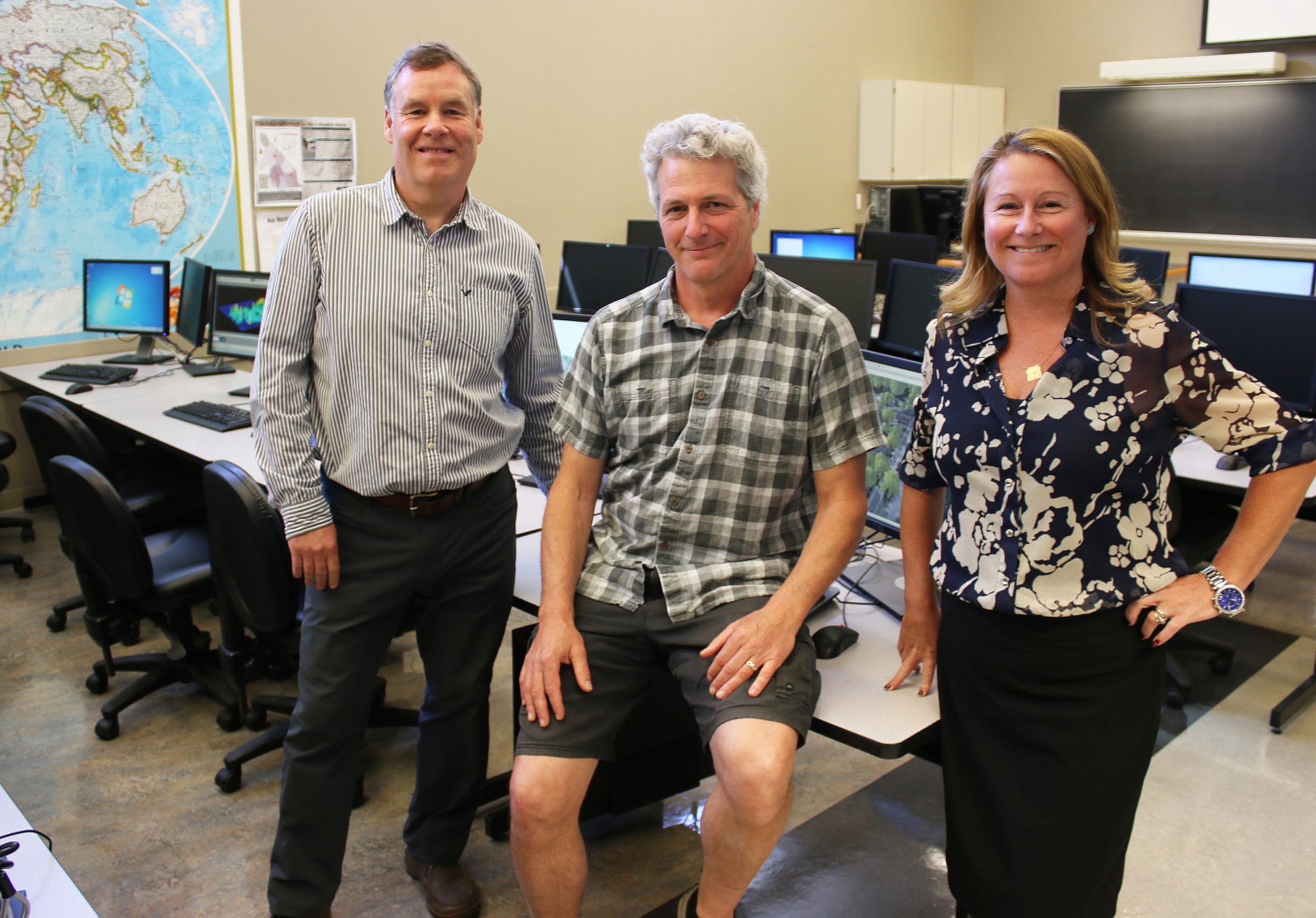Selkirk College Leads the Charge in Research for a Changing Forest Industry
Rapid innovation and technology adoption across the forest sector in rural B.C. will be fostered through a new research program spearheaded by Selkirk College.
Selkirk College’s Applied Research and Innovation Centre (ARIC) has been successful in securing $1.7 million in funding from the Natural Science & Engineering Council of Canada (NSERC). One of only 10 post-secondary institutions across Canada to receive an Innovation Enhancement Grant, the funding will support research designed to advance the region’s economy.
“In an increasingly globalized economy, forest companies must seek new ways to stay competitive, this is particularly critical in rural areas of British Columbia,” says Selkirk College’s Rhys Andrews, Dean of Applied Research and Innovation. “Advanced digital technologies like remote sensing, cloud-computing, spatial analysis, unmanned aerial system (UAS) surveying capabilities and augmented/virtual reality visualization offer multiple opportunities to support, enhance and expand our regional forest sector.”
Over the five-year term of the grant, Selkirk College will bring together partners that include forestry companies of all sizes, other educational institutions, government agencies and venture capital in a cluster-based model. The goal is to build a regional forest tech ecosystem that is bigger and more vibrant than the sum of its parts.
“Selkirk College is always striving for currency and relevancy in all our programming, this grant enables us jump ahead and become a leader in this area of our economy,” says Andrews, who started his career at Selkirk College as an instructor in the Forest Technology Program. “Through this funding, we will build collaboration by bringing stakeholders together in a way that is both exciting and beneficial for the future of our region.”
Individual projects will be established with partner organizations to identify how advanced digital technologies can be used to optimize business processes, decrease costs, enhance efficiency, and increase productivity and competitiveness. The development and adoption of these technologies will occur in association with the training of highly qualified personnel that meet the emerging and future workforce demands of the contemporary forest sector.
“NSERC is pleased to support this research project at Selkirk College, which has the potential to bolster the forest industry in British Columbia with the adoption and adaptation of new technology,” says Adela Reid, Manager of NSERC’s College and Community Innovation Program. “This project reinforces Canada’s strength in the forestry sector and is expected to directly benefit the Canadian economy, while also supporting innovation and economic development in a key sector for this rural area.”
Over the course of the five years, there will be more than 30 co-op students employed through summer internships.
“The heart of everything we do at Selkirk College revolves around students and providing the best learning outcomes,” says Andrews. “Students and faculty will have the opportunity to take part in projects that will have a real impact on the forest industry. The skills and training they receive during these internships will in turn enable our graduates to become leaders in their field.”
The grant binds together several other Selkirk College initiatives like the BC Regional Innovation Chair Rural Economic Development that has been building partnerships and providing valuable opportunities since it was formally established in 2006.
“This grant is uniquely positioned to further advance the goals of the Regional Innovation Chair in promoting innovation and technology transfer,” says Dr. Terri MacDonald, Selkirk College’s Regional Innovation Chair in Rural Economic Development. “It further supports the Kootenay Workforce Development Initiative’s efforts to help build competitive clusters outside the larger areas.”
In 2002, the college received a similar innovation grant that planted the seeds for the Selkirk Geospatial Research Centre (SGRC) which has grown into a valued entity in working with industry and business partners in the region. Over the last 16 years, the research team at the Castlegar-based SGRC has built extensive experience and expertise. This latest grant will enable the centre to take its effectiveness to another level.
“We’ve been working towards this goal for many years,” says Ian Parfitt, SGRC Coordinator. “Our grant application included support letters from 20 research and innovation partners, and our research program is designed to benefit our GIS and forestry students as well as the communities we serve.”
The confidence in Selkirk College shown by the federal government through the grant bodes well for future students interested in the forestry sector.
“This is an important step for our college and our region,” says Andrews. “There was significant competition for these grants and Selkirk College was successful in attaining this funding because we have proven that innovation in rural British Columbia can pay dividends on a much larger scale.”
Find out more about the Selkirk Geospatial Research Centre at Selkirk.ca/research/sgrc.






















